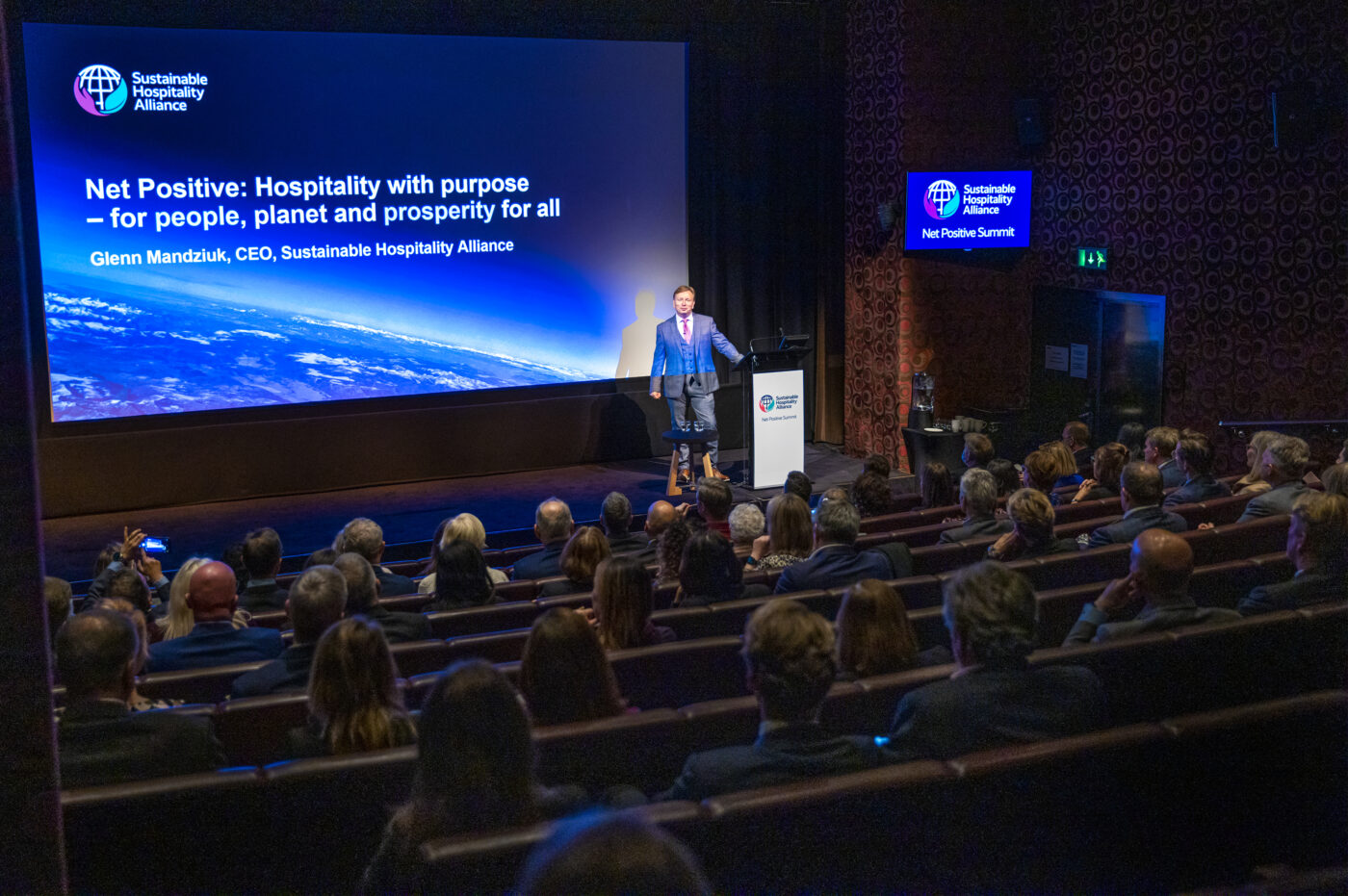This World Oceans Day is focused on the major role the oceans have in supporting life on our planet, such as providing the food we eat, employment opportunities and mitigation of climate change impacts.
Oceans produce 50% of the oxygen in the world and absorb 30% of CO2 produced by humans.1 They’re the main source of protein for more than a billion people, and 40 million people are expected to be employed by ocean-based industries by 2030.2
Despite this, we are threatening the ocean, and the benefits it provides, through overfishing, pollution and climate change. Big fish populations have depleted by 90%3 and it has been estimated that, by 2050, there could be more plastic in the oceans than fish4.
32% of all plastic packaging ends up in our oceans each year
Reducing our impact
There are many actions hotels can take to reduce their impacts on the oceans, including:
- reducing the consumption of seafood or sourcing seafood which has been certified as being more sustainable.
- reducing the amount of plastic used in operations, especially single-use plastic often used for packaging. Each year 32% of all plastic packaging ends up in our oceans.5
Steps to remove single-use plastic from your operations
Plastic can be found in almost every department of a hotel so it’s worth having a joined-up approach to addressing it. Some ideas of how to approach the issue include:
- Create a workgroup of people from each department that can contribute to your efforts (especially Housekeeping and Food & Beverage).
- Review your operations to see where you use plastics and which items you buy or use the most (examples could be plastic water bottles, takeaway food packaging and individual toiletry bottles).
- Work with suppliers to see how they could help you by supplying alternative options or reducing the amount of plastic packaging on the items you purchase.
Reduce, reuse, recycle
When you’re thinking about how to reduce your use of plastics, make sure you take the whole picture into account otherwise you could end up shifting issues. For example, if changing packaging results in shorter shelf-life for food, this can create more food waste and contribute to climate change.
Whether thinking about items made from plastics or alternative materials, it’s important to carefully consider the most beneficial actions. Some considerations, in order of preference, are:
- Do you need the item at all or if you can remove it?
- If you do need to use the item, can you opt for a reusable option?
- If there aren’t any viable reusable options, can you use a single-use item which can be recycled at the end of its life and, even better, is made using recycled material to support the circular economy?
We need to all work together to reduce our impacts and enable the oceans to continue to provide vital benefits to us. Check out our factsheet on single-use plastics for more information on just one way your hotel can support their restoration.




